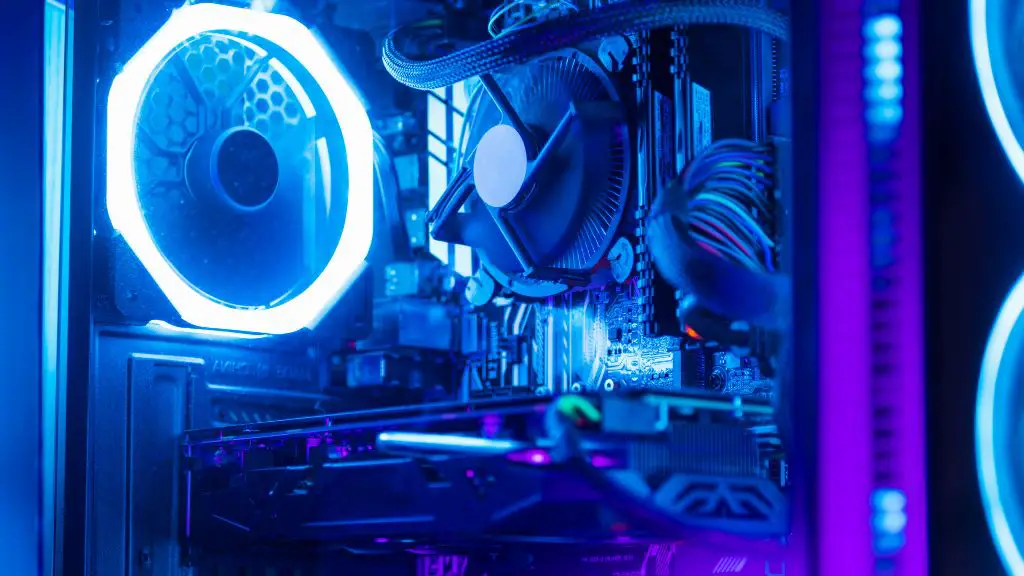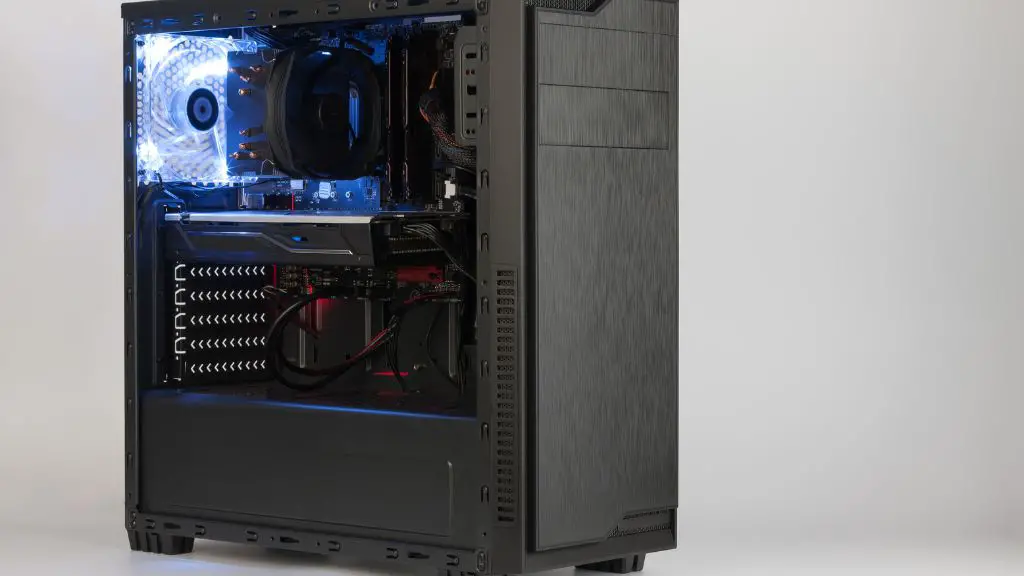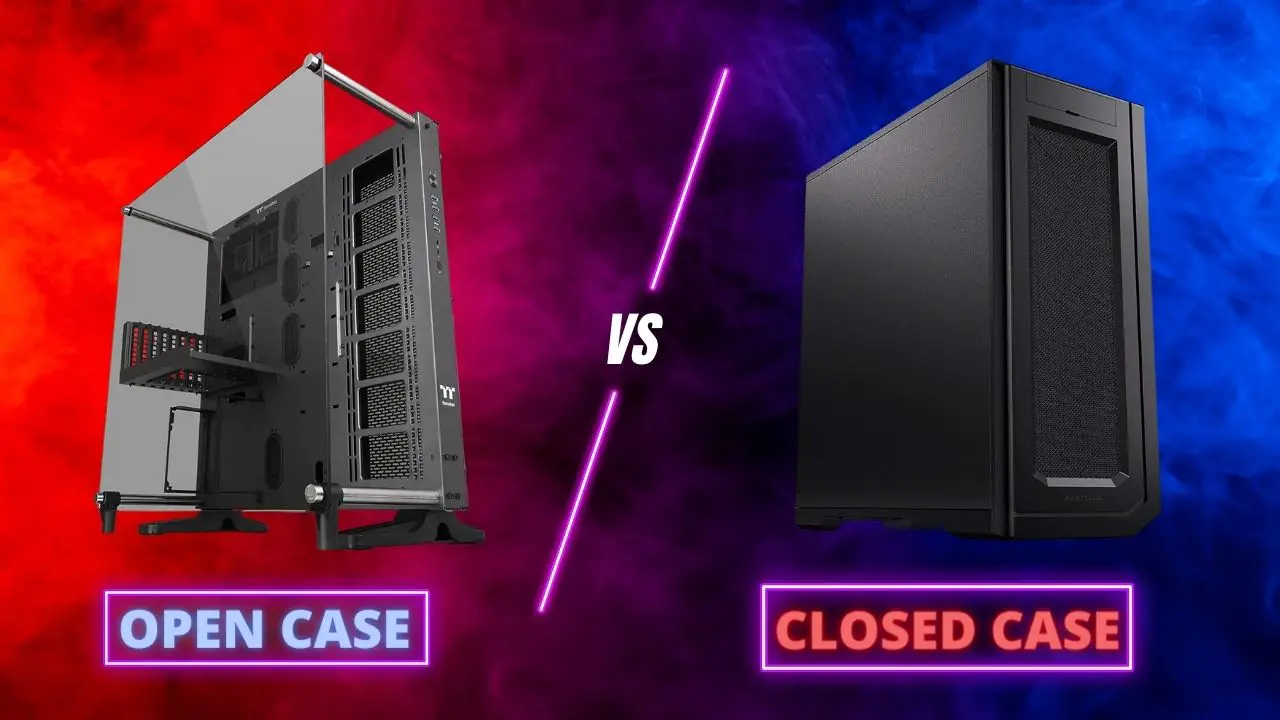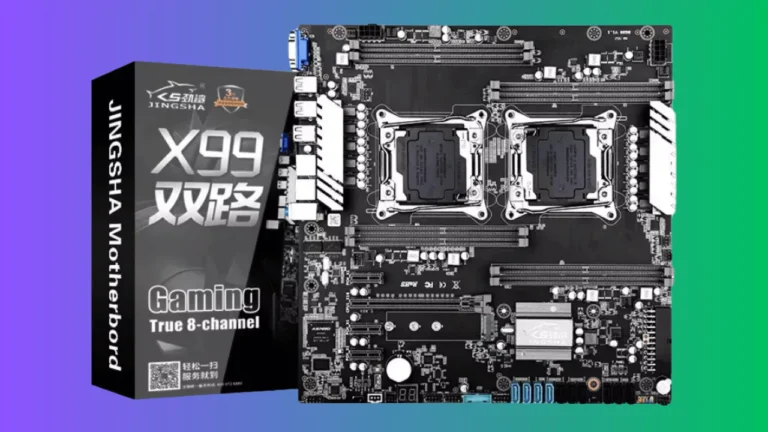There’s been a great debate going on in the PC community for years now – should you have your PC case open or closed? On one side, you have the people who swear by keeping their cases open so they can show off their beautiful hardware. They claim that it helps with cooling and makes it easier to upgrade components. On the other side, you have the people who say that having your case open is a recipe for disaster – dust will get into your system and cause problems, and it’s harder to keep your system cool when the case is open. So, which side are you on?
If you’re an aspiring PC gamer, you’ll know how difficult it is to build a gaming rig capable of playing the latest games. Not only is it costly to build, but you’ll also have to deal with annoying cooling issues and potential damage to your rig due to overheating.
You’ve decided you want a new PC, but there are so many choices to make. Do you get an open or closed PC case?
However, the main difference between these two cases is that an open case is designed to be opened to access and repair components inside. Whereas a closed case is designed to be closed during normal operation.
It can be tough to decide whether to use an open or closed PC case. Each option has its own set of pros and cons. If you want to know more about these cases, then keep reading.
I’m here to help make your decision easier. In this article, I’ll discuss the benefits of both open and closed PC cases, so that you can make the best choice for your needs. First I will tell you about the PC cases.
What are PC Cases?
A PC case is an enclosure that contains all the components of a desktop computer. The case itself protects the internals from being damaged by outside forces. It also provides structural support and ventilation for the components. Most cases are made out of metal or plastic, and they come in a variety of shapes and sizes.
Open PC Case

An open PC case is just that, a computer case that has been designed to be easily opened. This type of case is usually intended for those who want to do some sort of customization or upgrade to their rig.
PROS:
1. Better Airflow:
Better airflow is a major advantage of open cases. Heat can build up because the components are not enclosed in a small space.
2. Easy to Access Components:
Whether you’re tinkering with your PC or needing to make repairs, this is the perfect tool.
3. Show Off Your Rig:
If you’re proud of your rig, then an open case is a great way to show it off. This is because all of the components are visible, which can be a great conversation starter.
CONS:
1. Dust accumulation:
Open cases have the disadvantage of accumulating dust. Dust can get into the components because there’s nothing to prevent it.
2. Potential for Damage:
Another downside of an open case is that there’s a potential for damage. If something falls or hits the rig, the components are not protected.
3. Noise:
An open case can also be quite noisy. As all components are exposed, nothing is stopping the noise from escaping.
Closed PC Case

PC cases that are closed are the exact opposite of those that are open. If it’s not necessary to open the case, it shouldn’t be opened.
PROS:
1. Dust-Free Environment:
A closed case provides a dust-free environment, one of its biggest advantages. Dust cannot enter the components because they are enclosed.
2. Better Protection:
Closed cases offer better component protection. Enclosed components, so if something falls or hits the rig, the damage will be less likely.
3. Reduced Noise:
Noise can also be reduced by a closed case. The noise gets trapped in the enclosures of the components.
CONS:
1. Poor Airflow:
Closed cases are disadvantageous in that they restrict airflow. Due to their enclosed nature, the components generate heat.
2. Difficulty Accessing Components:
Another weakness of a closed case is that components can be difficult to access. You will need to open the case to access the components as they are enclosed.
3. Limited Customization Options:
It offers limited customization options. You won’t be able to show off your rig in the same way as you would with an open case.
Which is a Better Choice, Open PC Cases or Closed PC Cases?
The answer to this question depends on your needs. An open case is a better option if you frequently need to repair your PC or enjoy tinkering with it. You should choose a closed case, however, if you need a dust-free environment or You can protect your components better.
Generally, An open PC case is a better option for gaming PC as it offers better airflow for the graphics card and CPU. Generally, closed cases are a better option for PCs since they provide a dust-free environment and better component protection.
Conclusion
Based on the above observations, The open PC case offers better airflow for graphics cards and CPUs, making it the better option for gaming PCs. A closed case protects components and offers a dust-free environment for general-purpose PCs.
Both types of cases have their advantages and disadvantages, so it’s important to choose the right one for your needs.
FAQs
Which Are More Expensive: Open PC Cases or Closed PC Cases?
Closed PC cases are typically more expensive than open PC cases. The reason for this is that closed cases protect components and prevent dust from entering.
What are the benefits of an open PC case in terms of cooling?
Components in open PC cases benefit from better airflow. Cooling the components can improve performance by keeping them cool.
Do Open-Air Cases Get Dusty?
Yes, open-air cases can get dusty. As a result, dust can easily enter the components. Plus, open-air cases typically have less airflow than closed cases, which can cause dust to build up.







